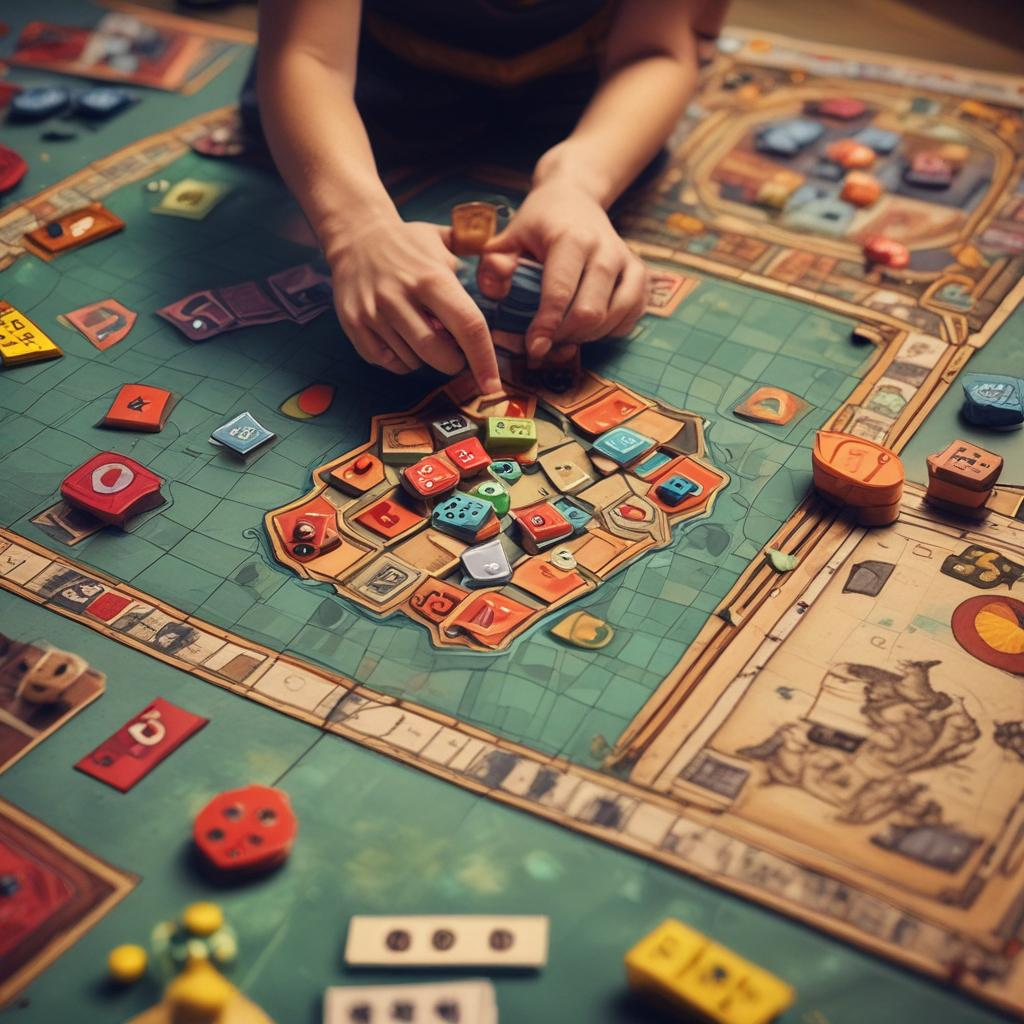There's something profoundly nostalgic and profoundly immersive when you open an old, slightly worn box containing a board game. Recently, during a visit to my grandparents' house tucked in the rural outskirts where Wi-Fi still struggles to permeate, I stumbled upon a dusty, almost forgotten set of Carrom tucked beneath stacks of old magazines and books. As family gathered around the vintage wooden board, the afternoon sun streaming through lace curtains, every striker shot and carom-disc flick was not just a battle for points; it was a reconnection with a shared history, a simpler pleasure that hadn't even required the modern-day pings of notifications.

From this personal anecdote springs a broader narrative about how traditional board games are navigating the fast currents of the digital age. Despite the immersive allure of digital entertainment, traditional board games are experiencing a fascinating resurgence, weaving their way from ancient pastimes to modern delights. The reasons behind this revival are as rich and varied as the games themselves.
The Historical Roots of Board Games
Board games are one of the oldest known forms of social interaction through play. Archaeological records trace board games back to the cradles of civilization. The Royal Game of Ur, found in ancient Mesopotamia (present-day Iraq), dates back to about 3000 BCE. Similarly, Senet, revered in ancient Egypt, showcases the time-transcending appeal of board games. These games weren’t just for entertainment; they held significant cultural, social, and religious value, reflecting the philosophic and strategic thinking of the time.
The Decline and Renaissance
The advent of the digital age in the late 20th century, marked by video games and later by social media and mobile apps, led to a significant decline in traditional board gaming. Screens offered new realms of interactivity and visual stimulation at a scale previously unimaginable. As newer generations grew up digitally native, the classic board games started gathering dust in closets. However, the 21st century brought about a renaissance in these traditional games, prompted by various factors that pulled them back into the spotlight.
Why Traditional Board Games Are Coming Back
One might wonder why in an era of unprecedented digital connectivity, where virtual realities and video games reign supreme, are old-school board games regaining popularity? The reasons are multifaceted:
- Social Interaction: Unlike digital games, board games create an arena for face-to-face interaction. They bring people together, fostering communication and real-time socialization.
- Digital Detox: In an era where screen fatigue is real, board games offer a tangible escape. They provide a tactile experience that digital games cannot replicate, encouraging players to physically engage with components and each other.
- Nostalgia: For many, traditional games evoke a sense of nostalgia, bringing back memories of simpler times spent with family and friends.
- Educational Value: Many board games involve strategies, critical thinking, and problem-solving. They serve as educational tools enhancing cognitive skills, making them popular among educators and parents.
- Collectibility and Craftsmanship: The aesthetic appeal of board games, often with elaborate designs and high-quality materials, makes them collectible items treasured by enthusiasts.
The Global Board Game Market
The numbers reflect this resurgence. According to industry reports, the global board game market is expected to grow significantly in the coming years, propelled by rising interest in tabletop gaming. This growth is not localized but global, with regional games gaining international audiences, fueled by crowdfunding platforms and social media which facilitate widespread sharing of and access to diverse games.
Impact of Technology on Traditional Games
Ironically, the very force that once seemed to threaten the existence of board games—technology—is now instrumental in their resurgence. Online platforms and apps that simulate board games have introduced these age-old pastimes to new audiences. Virtual game nights became particularly popular during the COVID-19 lockdowns, allowing friends and families to connect and play despite physical distances.Conclusion: From Past to Present
The journey of board games from the ancient tables of Mesopotamia and Egypt to modern-day gaming conventions and digital platforms is both storied and significant. It showcases the enduring appeal of playing against a human opponent, of strategy and luck, of tangible tokens and pieces moving across a well-loved board. As we continue to navigate a complex digital world, the simplicity and connectivity offered by board games seem more relevant than ever. They remind us that sometimes, to move forward, we must take a glance backward and bring along what has joyously united humanity across ages—our love for playing games.


.jpg)






.jpg)



0 Comments